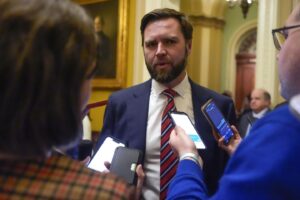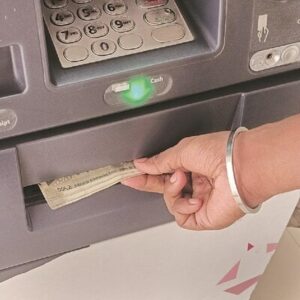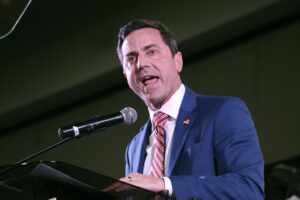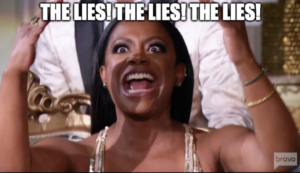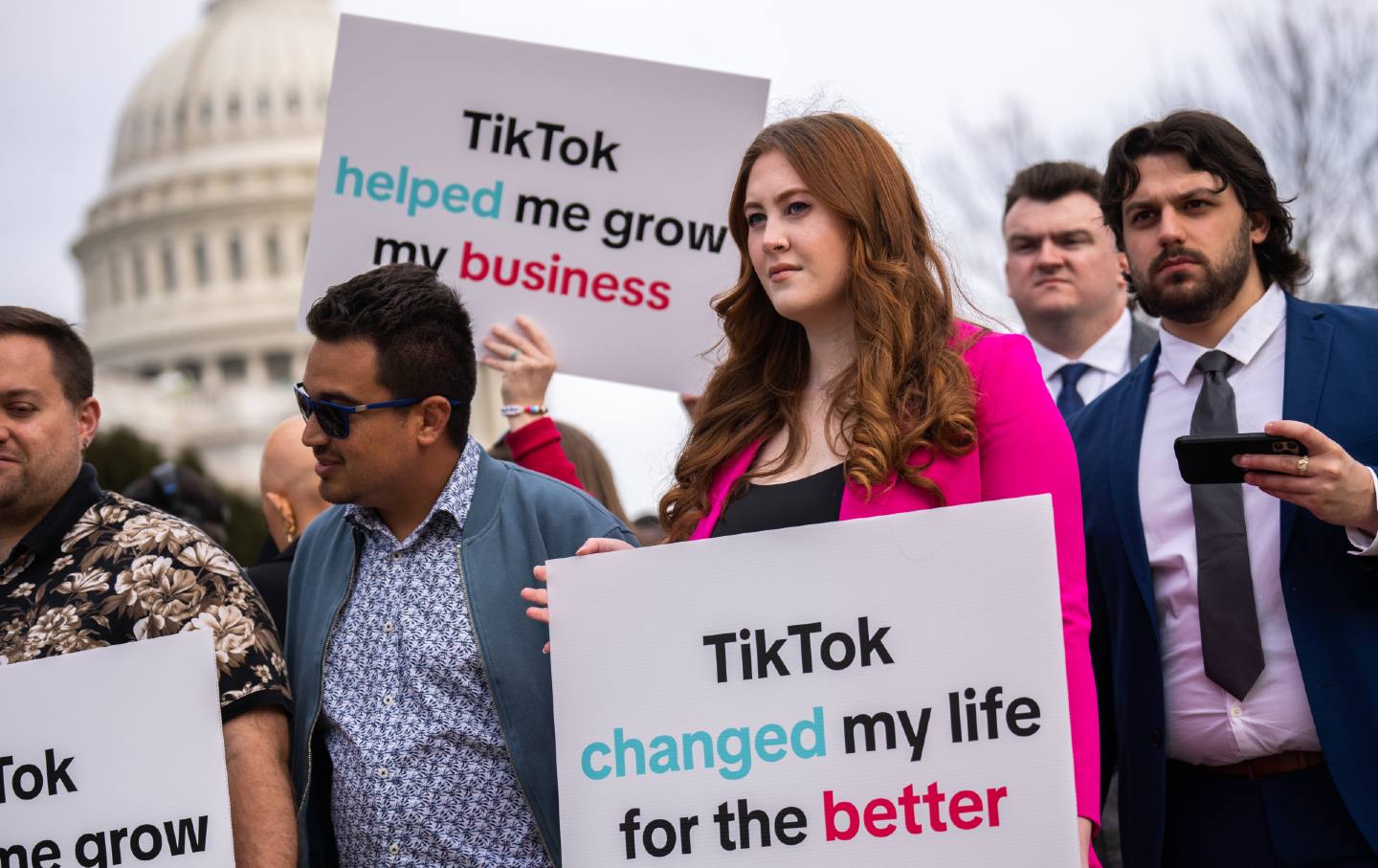
Politics
/
March 28, 2024
How the effort to bank TikTok is a fascinating case study in transpartisan politics.
Earlier this month, millions of young Americans opened TikTok on their phones and were faced with a startling message: “Stop a TikTok shutdown,” it read. “Speak up now—before your government strips 170 million Americans of their Constitutional right to free expression.” A bright red “call now” button appeared at the bottom of the screen.
This rare call for direct action came in response to the Protecting Americans from Foreign Adversary Controlled Applications Act—a bill that would prevent any online application that is controlled by a “foreign adversary” from being hosted in the United States, unless said app is divested from said adversary. (In this case, America’s foreign adversaries are defined as China, Russia, Iran, and North Korea.) And just in case that was too subtle, it explicitly names TikTok as needing to be divested from its Chinese parent company, ByteDance.
Current Issue
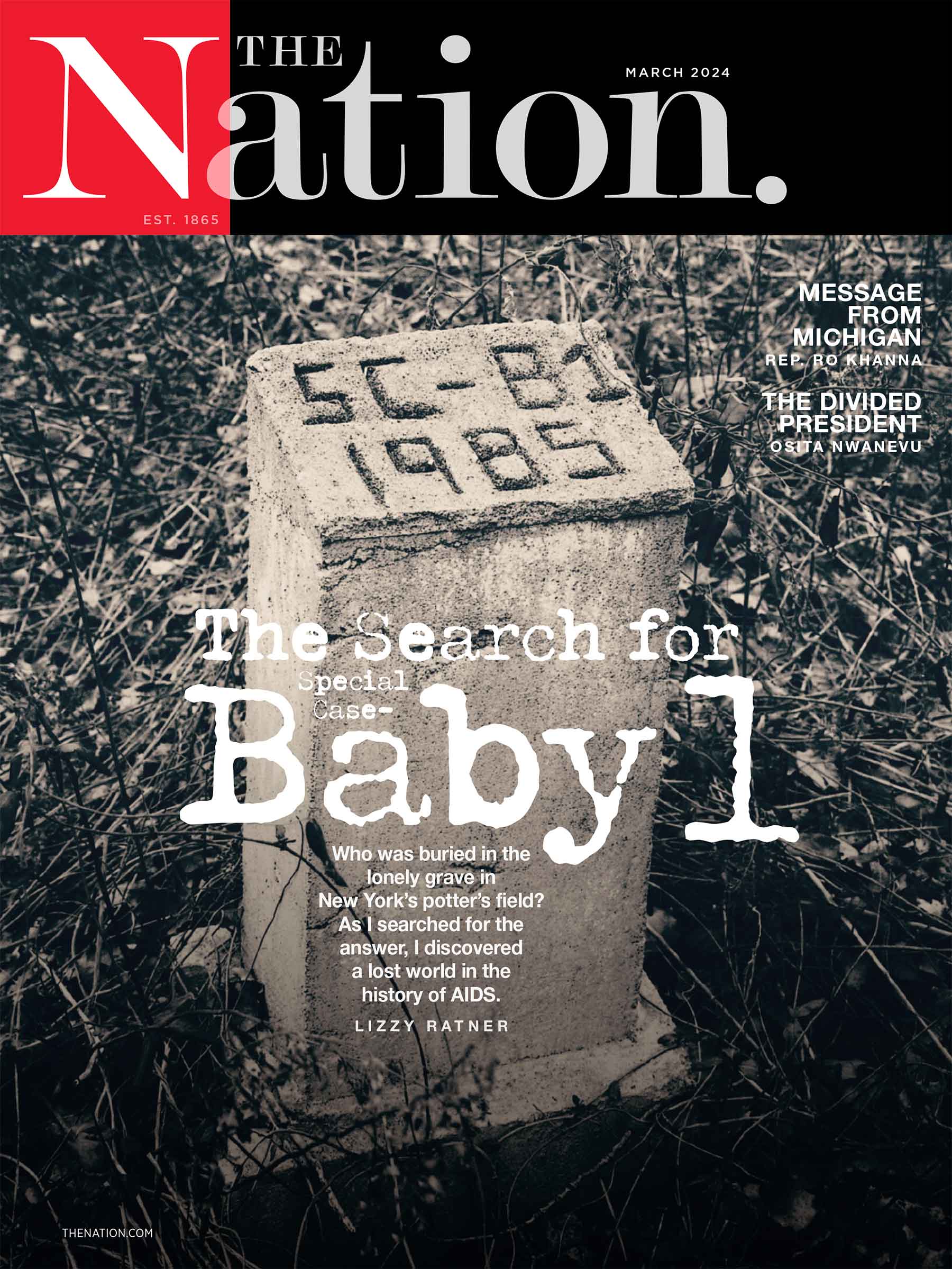
While the bill overwhelmingly passed in the House 352-65, the members in opposition don’t fall neatly along party lines. The list includes progressive Democrats and Freedom Caucus Republicans who have come to the same conclusion, albeit from different presuppositions.
The effort to ban TikTok—and the backlash that has followed—has been a fascinating case study in transpartisan politics. Prominent figures on both sides of the aisle have cited a wide range of concerns, including data privacy, national security, freedom of speech—and, perhaps most saliently this election year, the transformative effect the bill could have on presidential power.
Advocates for the bill have insisted that it is not technically a ban—that TikTok could continue to be used in the United States so long as ByteDance sells it within six months of the law’s enactment. But that appears to be a nonstarter, as both ByteDance and China are highly unlikely to cooperate with such a requirement. All signs indicate that a signature from President Biden would result in the app’s disappearance in the United States.
What could be even more impactful than the non-ban ban, though, is the way it is enforced. The bill applies to any website or application with over a million monthly visitors that allows users to create accounts and share content. If it has so much as a comments section, it counts. No one is even sure how many apps the bill could ban as soon as it gets signed.
That would be up to the White House. The bill gives the president the authority to determine whether an app controlled by a foreign adversary poses a “significant threat to the national security of the United States.” It also requires him to approve its sale, which means that even if a given tech company tried to cooperate, he could stonewall indefinitely to effectively ban the app anyway.
Then there’s the vagueness of what constitutes “control” by a foreign adversary. The bill leaves that up to interpretation too. The company doesn’t even have to be based in a foreign adversary country to have its apps banned—it just has to be “subject to the direction or control” of someone who is.
As one technology lawyer put it: “The President really has the unchecked power to put another app on this list.”
The bill’s opponents include Democratic representatives like Ro Khanna, who represents Silicon Valley and would rather protect data privacy with a more “narrowly tailored law.” Jamaal Bowman thinks the bill is driven by “xenophobic anti-China rhetoric,” while Alexandria Ocasio-Cortez wants information about the alleged security risks to be made public. “This is putting the cart before the horse,” she said, on TikTok.
Meanwhile, on the other side of the aisle, Nancy Mace thinks it is “not the role of government to ban apps from the app store.” Matt Gaetz says the bill is “rushed” and “overbroad.” Marjorie Taylor Greene worries it would “open Pandora’s box” and lead to more censorship down the line.
Loath as I am to agree with Marjorie Taylor Greene, giving the president near-unilateral authority to ban free-speech platforms could very well backfire—especially if that president is Donald Trump. Imagine handing that kind of power to the man who recently called Facebook an “enemy of the people,” who is known for harboring personal vendettas, and who owns a competing social media platform of his own. What could go wrong?
Popular
“swipe left below to view more authors”Swipe →
The concerns about TikTok are genuine, but so are the concerns of those opposing the bill. It would be more responsible—and more effective—to regulate how the company collects and uses Americans’ personal data. Last week, the Department of Justice sued to regulate Apple; the same could be done with TikTok.
Regulation would help curb misinformation, which spreads like wildfire on the app. It would also—as opposed to an outright ban—prevent backlash among young voters ahead of a close election. And it won’t set a precedent of unchecked executive power, so Trump can’t ban Twitch because he thinks its owner’s business interests in China count as foreign control.
One hundred and seventy million Americans use TikTok. That’s more than half the population, including one-third of adults and almost two-thirds of people under 30. Regulatory action would make the app safer to use, without banning one of the country’s most popular social media platforms—and angering most of the country in the process.
Thank you for reading The Nation!
We hope you enjoyed the story you just read. It takes a dedicated team to publish timely, deeply researched pieces like this one. For over 150 years, The Nation has stood for truth, justice, and democracy. Today, in a time of media austerity, articles like the one you just read are vital ways to speak truth to power and cover issues that are often overlooked by the mainstream media.
This month, we are calling on those who value us to support our Spring Fundraising Campaign and make the work we do possible. The Nation is not beholden to advertisers or corporate owners—we answer only to you, our readers.
Can you help us reach our $20,000 goal this month? Donate today to ensure we can continue to publish journalism on the most important issues of the day, from climate change and abortion access to the Supreme Court and the peace movement. The Nation can help you make sense of this moment, and much more.
Thank you for being a supporter of independent journalism.

More from The Nation
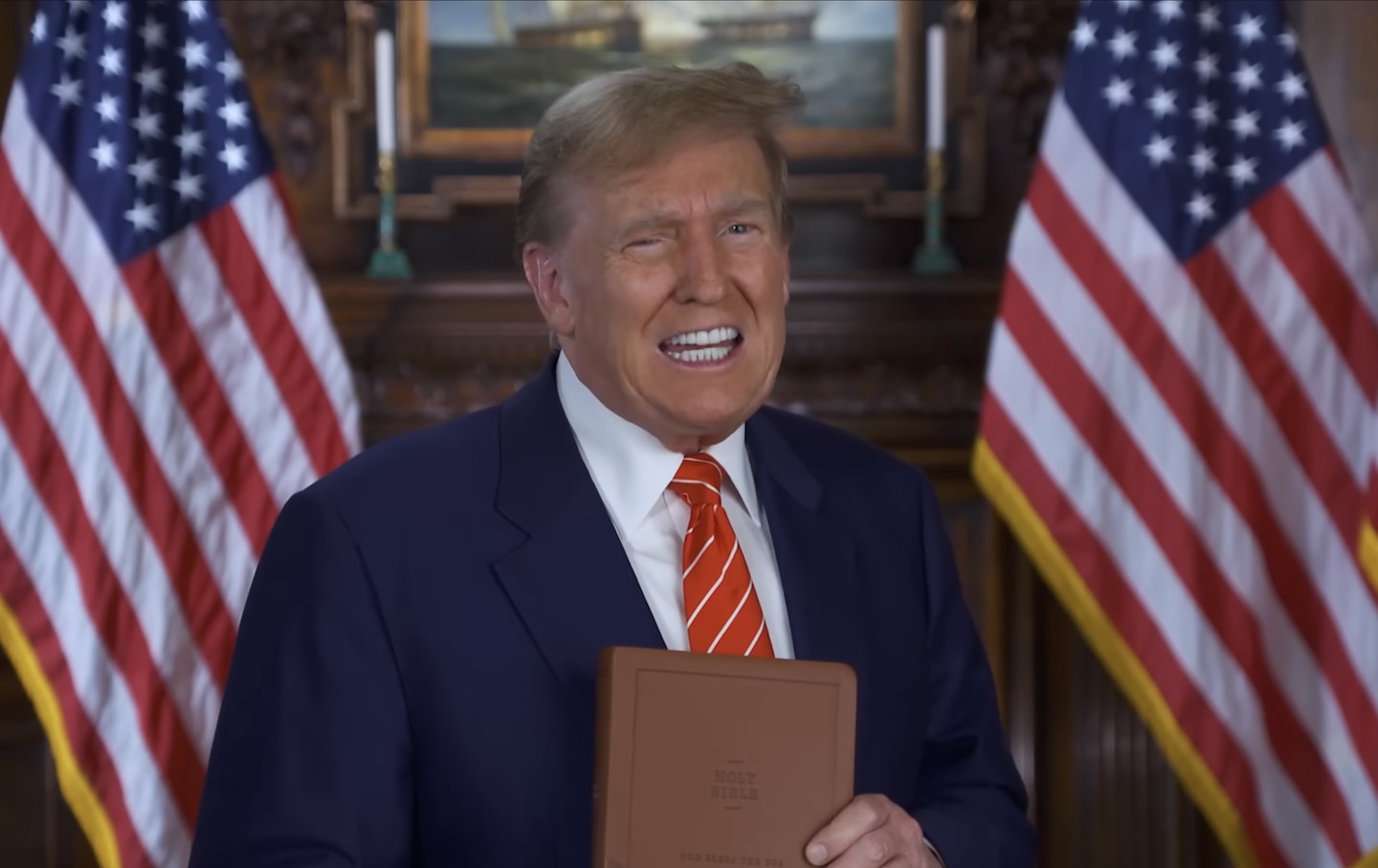
In a quick cash-grab to foot the bill for his legal troubles, the former president has teamed up with country singer Lee Greenwood to peddle branded scripture.
Chris Lehmann
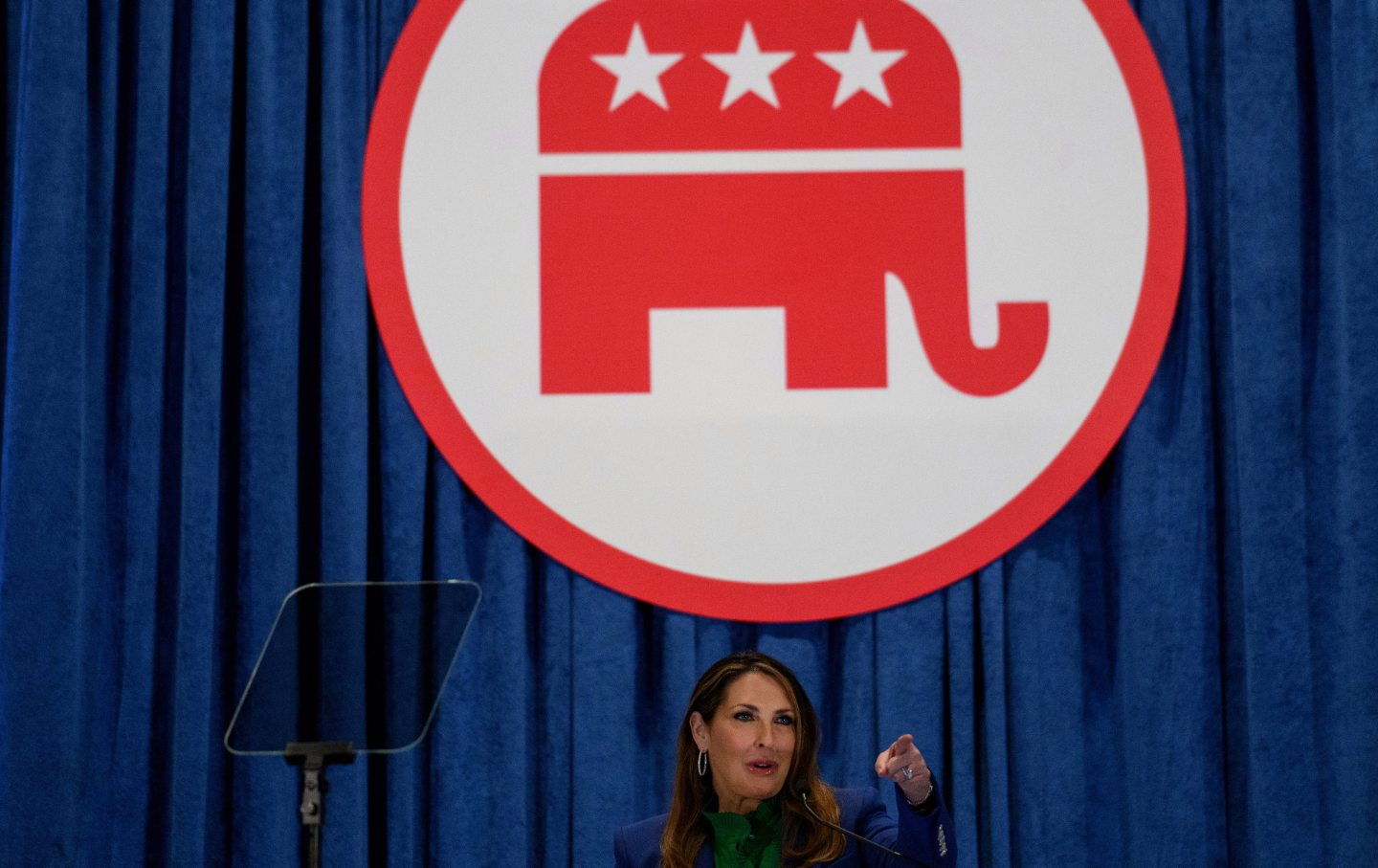
How did they think this hire was smart? The network’s accounting for this mess is unfinished.
Joan Walsh
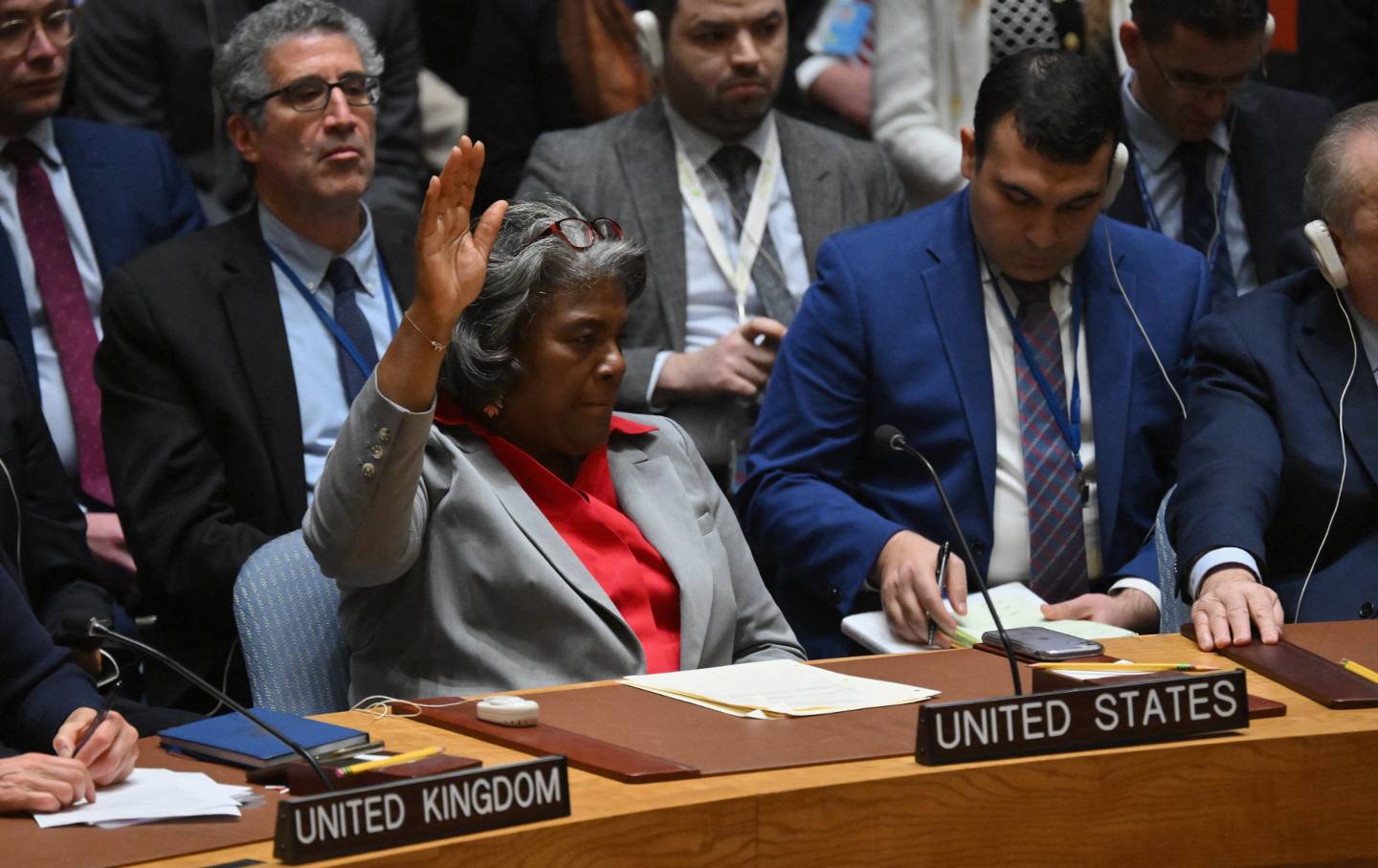
The decision to let a UN cease-fire resolution pass has been hailed as a dramatic turning point. It isn’t.
Aída Chávez
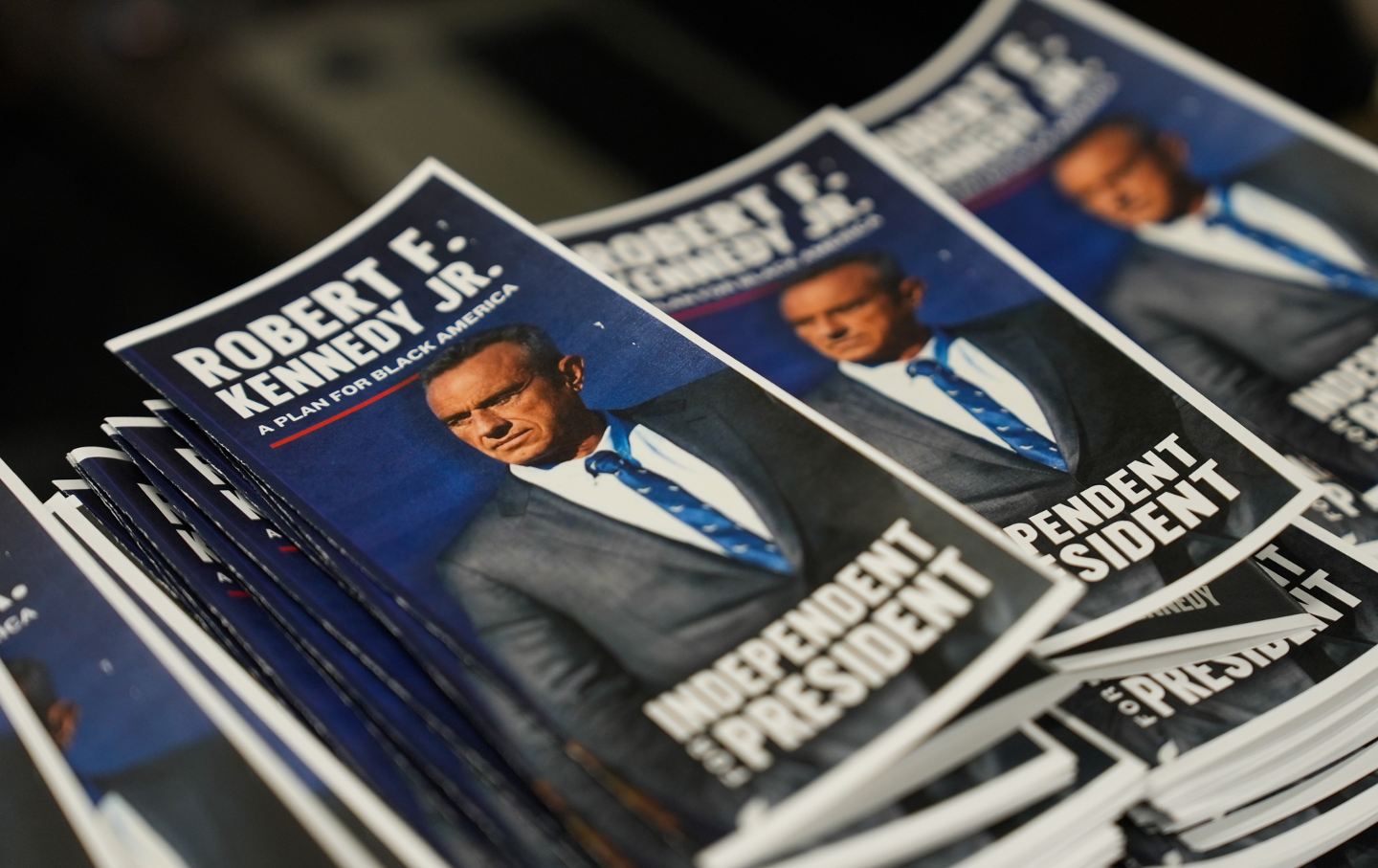
Nicole Shanahan has little to recommend her as a presidential running mate besides her enormous wealth.
Joan Walsh
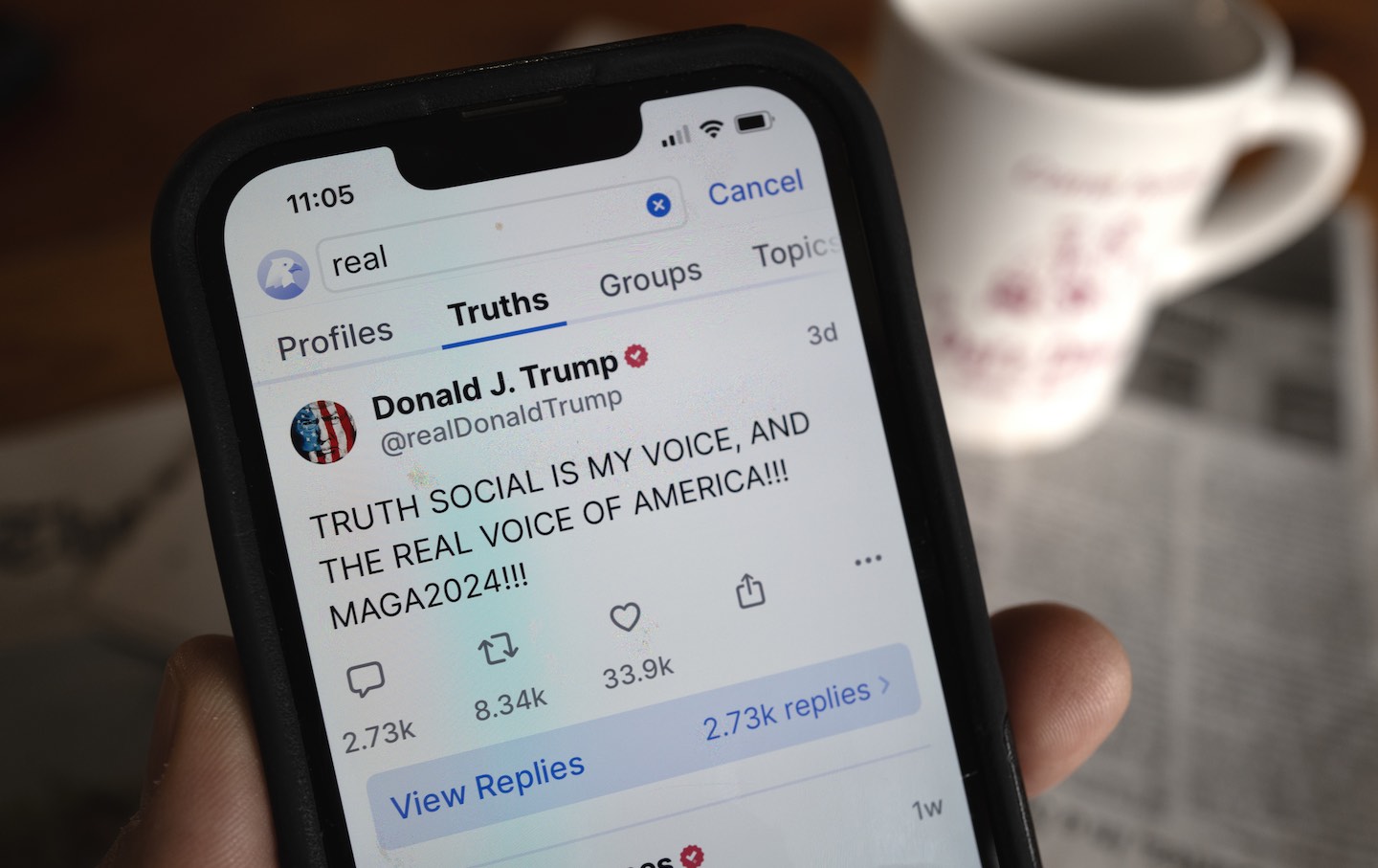
To make the bond to appeal his civil fraud cause, the former president orchestrated a merger for his social media platform, Truth Social.
Chris Lehmann
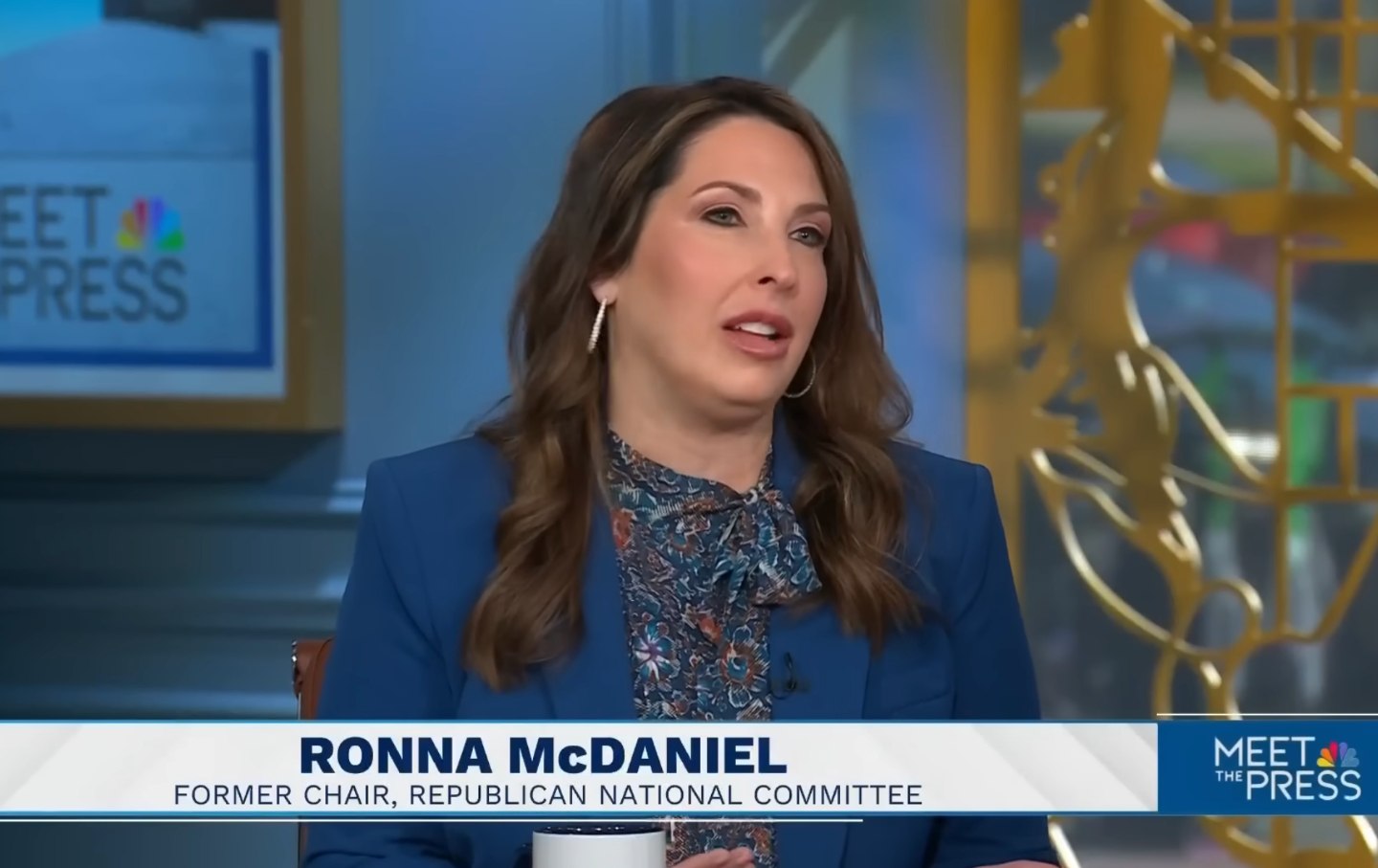
She’s a proven liar. She’s caused a PR nightmare. And she wasn’t even good at her job. What was NBC thinking?
John Nichols



